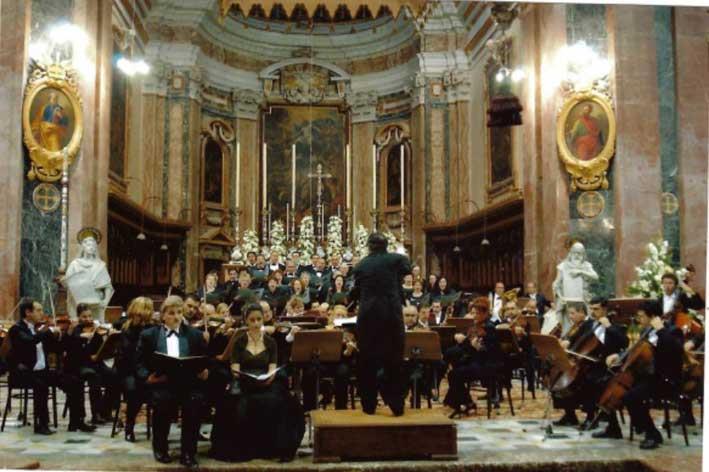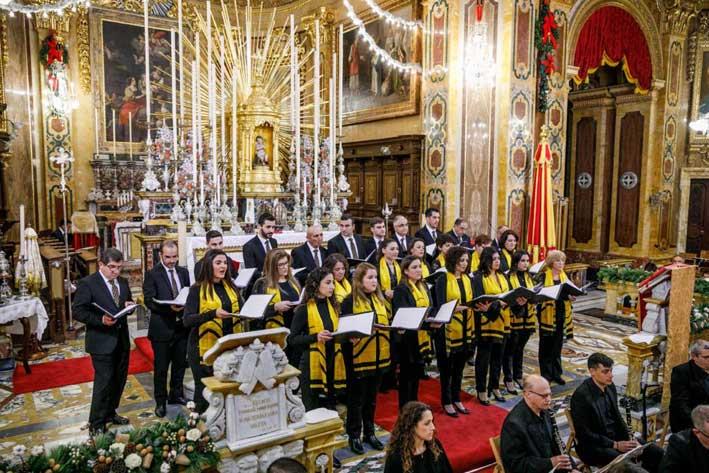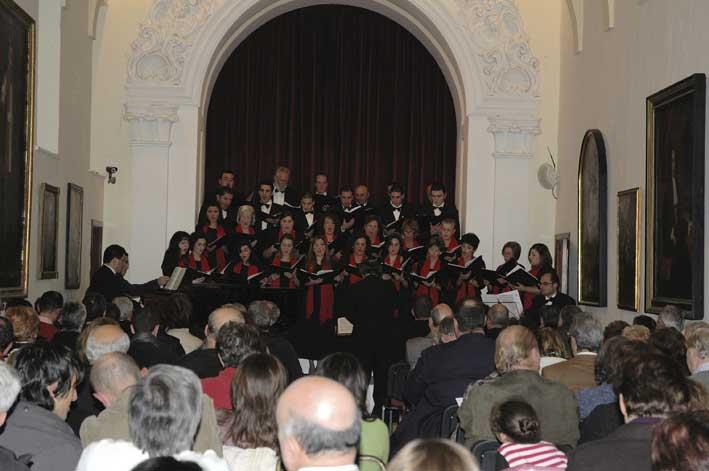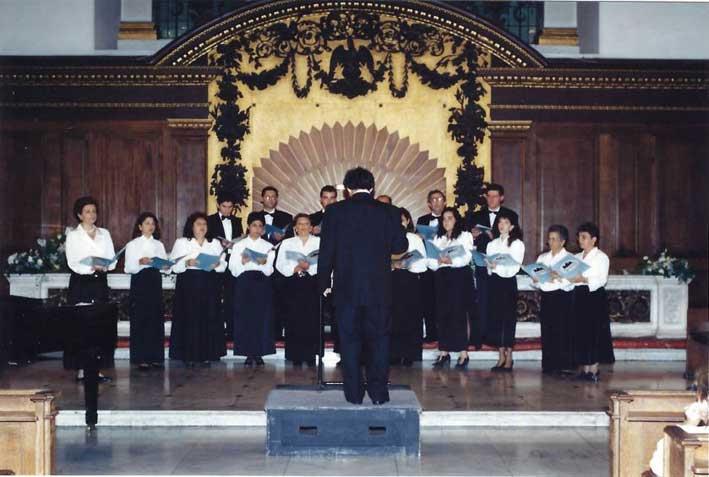This year Gozo's Gaulitanus Choir celebrates its 30th anniversary.
Its first performance dates back to 27 April 1990, when it participated in a Musico-Literary Evening at the Qala Parish Church - the first of two celebratory grand musical events organised by the parish and entrusted to the then up-and-coming Mro Colin Attard. This was deemed the right opportunity to formalise and christen the choral group which the maestro used to form ad hoc for his various musical events in the preceding decade. The chosen name was Gaulitanus, meaning "of Gozo" - as members hailed from all over the island. This was the island's first independent and non-affiliated choir.

The choir gradually started making its presence felt, giving its own direct contribution to the development of culture on our islands, essentially offering its activity for free. It also started appearing regularly in mainland Malta. Besides other activities, the choir surely acquired a broader national profile through its involvement in the series of grand concerts devoted to Carmelo Pace's music organised by the Mdina Cathedral Museum Committee between 1997 and 2008, generally at the Mdina Cathedral.

Throughout, the choir has been very creative, introducing new genres and concepts. In line with its secular-orientation, it has presented quite an extensive and versatile repertoire, often presenting new genres - whether operatic or chamber, light or semi-classical and without refraining from putting on sacred works. Also very fertile ground for soloists, it has three CDs to its name. All this has given a particular tinge to the choir, which was very favourably received by the public and critics alike.

Arguably, the choir's biggest feat is the organisation of Gaulitana: A festival of music. Launched in 2007, this international festival has developed extensively, betraying the size of the organisation itself. Featuring an eclectic mix of musical genres, from a fully-fledged opera to symphonic concerts, from choral to chamber, from light to sacred, as well as exhibitions and an educational programme, it is held around Gozo and firmly ingrained within Malta's cultural calendar. Receiving national and international recognition, it has also been referred to as "a major festival of classical music" by the UK's oldest musical journal Musical Opinion (Oct-Dec 2017) and awarded the prestigious EFFE (Europe for Festivals, Festivals for Europe) label by the European Festivals Association.

In these three decades, a most rewarding, albeit challenging, choir initiative was concert touring. With 19 ventures so far, the first being in 1995, the international programme of events became very constant and intensive in recent years, unfortunately brought to halt by the pandemic. Another feat for the choir itself, but also for the local choral history, the choir featured three times abroad in a single calendar year. It also became the first Maltese choir to take part in an operatic production abroad, appearing at Taormina's Teatro Antico, which was also transmitted worldwide in cinemas and on TV. For this, renowned international critic Jim Pritchard hailed "the splendid chorus" in a review appearing on Seen and Heard International.

These foreign ventures have seen the Gaulitanus Choir in Italy (seven times), Corsica (five times) with the odd extension to mainland France, England (three times) and Germany, the Netherlands, Greece and Latvia. It has appeared in several highly prestigious venues, from London's Westminster Cathedral to St James's Church Piccadilly, from Paris's L'Église de la Madaleine to Hamburg's St Peter's Cathedral and St Michael's Church, from Riga's St Peter's Church to Amsterdam's English Reformed Church, from Norwich's St John the Baptist Cathedral to Cambridge University's Corpus Christi Chapel, apart from a host of top Italian churches such as the basilicas of Sant'Andrea della Valle in Rome, Santa Croce and San Lorenzo in Florence and San Francesco in Assisi, and the cathedrals of Bologna, Bergamo, Prato and Pistoia. By regularly performing Maltese compositions, mostly in the vernacular, the choir has played an ambassadorial role.

Whereas a lot has changed since the very beginning, the Gaulitanus Choir remains very much attached to its ethos, often personified in its founder-director Mro Attard. Similarly, notwithstanding the fact that most of its operations have been extensively disrupted by the pandemic, the organisation persists with being positive. Hence, it enthusiastically longs to get back to its normal routine sooner rather than later, with its sole aim being, as always, the enriching of Malta's and Gozo's social fabric through music-making!
For more information visit www.gaulitanus.com